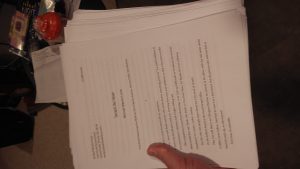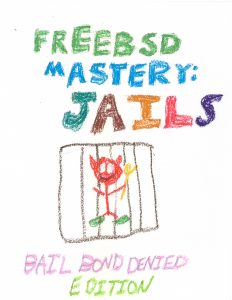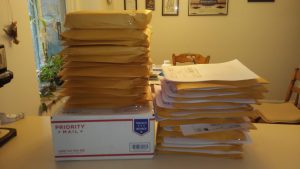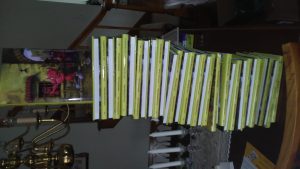Last night, I finished the first draft of Terrapin Sky tango, aka Butterfly Stomp Waltz #2. At 117K words it’s my longest novel to date. It’s a first draft, so I’ll be sending this to first readers and fine-tuning it for a while before release.
In weirdly related news–Every year, I donate something to the BSDCan charity auction. This year it’s
1) a copy of the Bail Bond Denied edition of FreeBSD Mastery: Jails.
2) The mostly complete first draft of Terrapin Sky Tango, This is mostly an excuse to separate nerds from their cash for a good cause. As this is a specialty item, not of general interest to the con attendees, I’ll do this auction silently during the con. See me for the bid sheet.

My draft of TST is almost 700 pages long. I printed it in slightly smaller type, with reduced spaces between lines, and got it down to under 500 pages. So I printed it double-sided, because this is mostly a novelty (or, for the person who thinks I’ll be a Collectible Big Name one day, an investment).
Please accept this totally non-faked photographic evidence that the manuscript is a real thing.
And I will see each and every one of you at BSDCan!



